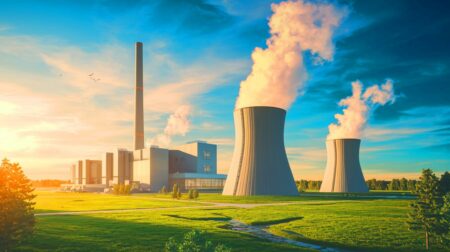Photo: Needpix.com
In our efforts to mitigate the effects of climate change we will need allies in the natural world and some of these allies might come in unlikely forms. In the form of brown algae, say.
Brown algae suck up large amounts of carbon dioxide from the air to grow before releasing some of that absorbed carbon back into the environment in the form of mucous called fucoidan.
Fucoidan remains hard to break down by marine creatures, which means that CO2 absorbed this way by the algae remains locked up for centuries with the algae acting as effective carbon sinks.
Just how much CO2 is absorbed by brown algae has been estimated by scientists in Germany at the Max Planck Institute for Marine Microbiology in Bremen. They have found that the algae could remove as much as 550 million tons of carbon dioxide from the air every year.
That comes close to Germany’s entire annual greenhouse gas emissions. In fact, the scientists say, brown algae even outdo forests in their carbon-storage capacity and could “thus play a decisive role for the atmosphere and our climate.”
Specifically, Buck-Wiese and his colleagues estimate that brown algae absorb 1 gigaton, a billion tons, of carbon per annually from the air. This means that up to 0.15 gigatons of carbon, equivalent to 0.55 gigatons of carbon dioxide, are sequestered long-term by brown algae each year.
Germany’s annual greenhouse gas emissions, meanwhile, stand at about 0.74 gigatons of carbon dioxide, as per official figures from 2020.
The algae “release up to a third of the carbon they absorb back into the seawater, for example in the form of sugary excretions. Depending on the structure of these excretions, they are either quickly used by other organisms or sink towards the seafloor,” the scientists explain.
“The excretions of brown algae are very complex and therefore incredibly complicated to measure,” adds Hagen Buck-Wiese, the first author of a newly published study on the findings. “However, we have managed to develop a method to analyse them in detail.”
This method allowed the German scientists to examine substances such as fucoidan, which accounts for around half of the excretions of the brown algae species under study, commonly known as bladderwrack.
Bladderwrack is a type of seaweed with aid-filled pods that allow it to float and grows on the northern Atlantic and Pacific coasts of the United States and the northern Atlantic coast and Baltic coast of Europe. It has long been used medicinally.
“The fucoidan is so complex that it is very hard for other organisms to use it. No one seems to like it,” Buck-Wiese says. “This makes the brown algae particularly good helpers in removing carbon dioxide from the atmosphere in the long term — for hundreds to thousands of years.”
Did you like it? 4.4/5 (29)








